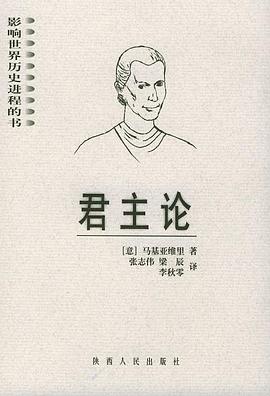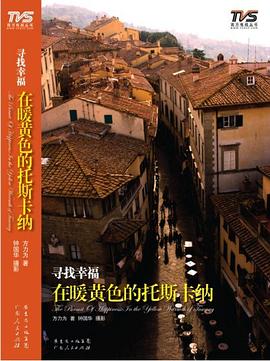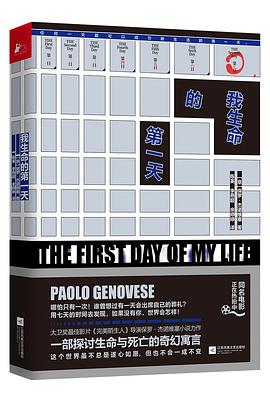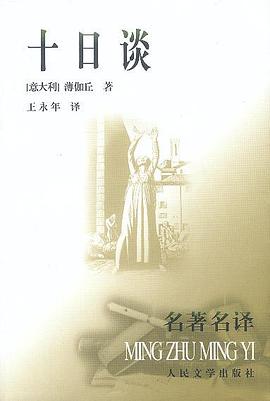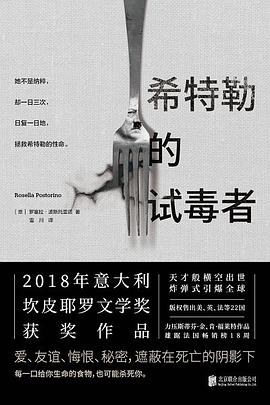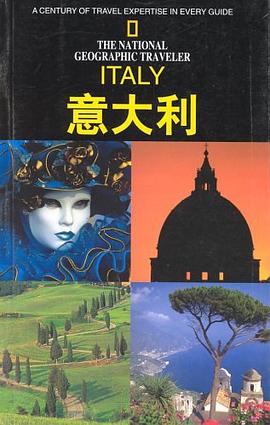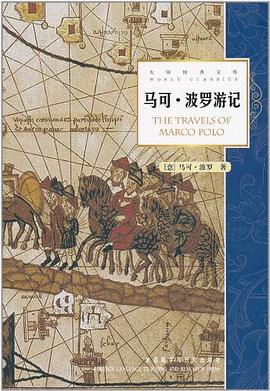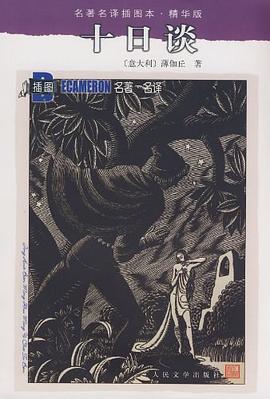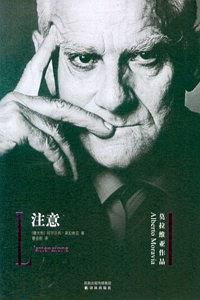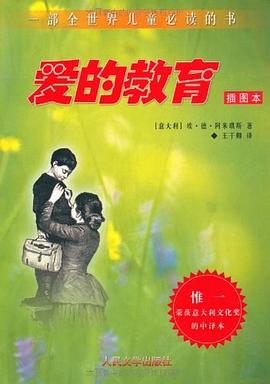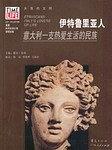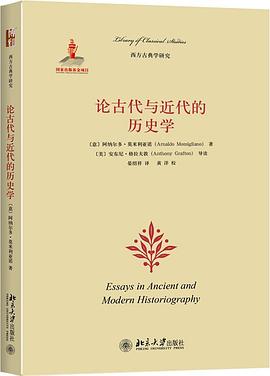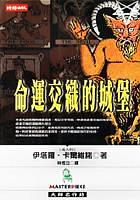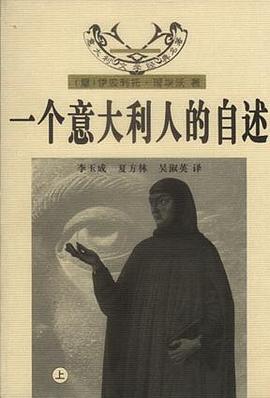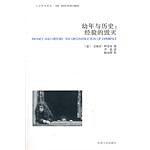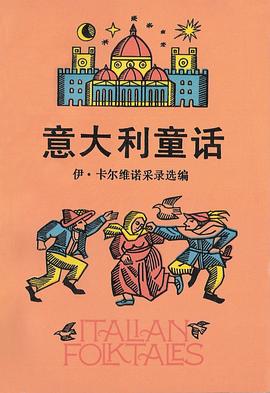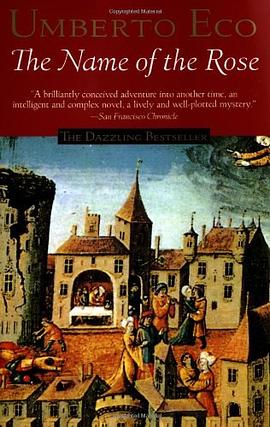

具體描述
The year is 1327. Franciscans in a wealthy Italian abbey are suspected of heresy, and Brother William of Baskerville arrives to investigate. When his delicate mission is suddenly overshadowed by seven bizarre deaths, Brother William turns detective. He collects evidence, deciphers secret symbols and coded manuscripts, and digs into the eerie labyrinth of the abbey where extraordinary things are happening under the cover of night. A spectacular popular and critical success, "The Name of the Rose" is not only a narrative of a murder investigation but an astonishing chronicle of the Middle Ages. --This text refers to the Paperback edition.
著者簡介
Umberto Eco (born 5 January 1932) is an Italian medievalist, semiotician, philosopher, literary critic and novelist, best known for his novel The Name of the Rose, an intellectual mystery combining semiotics in fiction, biblical analysis, medieval studies and literary theory. His 1988 novel Foucault's Pendulum has been described as a "thinking person's Da Vinci Code". Eco is President of the Scuola Superiore di Studi Umanistici, University of Bologna. He has also written academic texts, children’s books and many essays. Eco was born in the city of Alessandria in the region of Piedmont. His father, Giulio, was an accountant before the government called upon him to serve in three wars. During World War II, Umberto and his mother, Giovanna, moved to a small village in the Piedmontese mountainside. Eco received a Salesian education, and he has made references to the order and its founder in his works and interviews. His family name is supposedly an acronym of ex caelis oblatus (Latin: a gift from the heavens), which was given to his grandfather (a foundling) by a city official. His father was the son of a family with thirteen children, and urged Umberto to become a lawyer, but he entered the University of Turin in order to take up medieval philosophy and literature, writing his thesis on Thomas Aquinas and earning his BA in philosophy in 1954. During this time, Eco left the Roman Catholic Church after a crisis of faith. After this, Eco worked as a cultural editor for the state broadcasting station Radiotelevisione Italiana (RAI) and also lectured at the University of Turin (1956–64). A group of avant-garde artists—painters, musicians, writers—whom he had befriended at RAI (Gruppo 63) became an important and influential component in Eco's future writing career. This was especially true after the publication of his first book in 1956, Il problema estetico di San Tommaso, which was an extension of his doctoral thesis. This also marked the beginning of his lecturing career at his alma mater. In September 1962, he married Renate Ramge, a German art teacher with whom he has a son and a daughter. He divides his time between an apartment in Milan and a vacation house near Rimini.
圖書目錄
Preface
Prologue
Part 01:First Day
Chapter 01: Prime
Chapter 02: Terce
Chapter 03: Sext
Chapter 04: Toward Nones
Chapter 05: After Nones
Chapter 06: Vespers
Chapter 07: Compline
Part 02: Second Day
Chapter 08: Matins
Chapter 09: Prime
Chapter 10: Terce
Chapter 11: Sext
Chapter 12: Nones
Chapter 13: After Vespers
Chapter 14: Compline
Chapter 15: Night
Part 03: Third Day
Chapter 16: From Lauds to Prime
Chapter 17: Terce
Chapter 18: Sext
Chapter 19: Nones
Chapter 20: Vespers
Chapter 21: After Compline
Chapter 22: Night
Part 04: Fourth Day
Chapter 23: Lauds
Chapter 24: Prime
Chapter 25: Terce
Chapter 26: Sext
Chapter 27: Nones
Chapter 28: Vespers
Chapter 29: Compline
Chapter 30: After Compline
Chapter 31: Night
Part 05: Fifth Day
Chapter 32: Prime
Chapter 33: Terce
Chapter 34: Sext
Chapter 35: Nones
Chapter 36: Vespers
Chapter 37: Compline
Part 06: Sixth Day
Chapter 38: Matins
Chapter 39: Lauds
Chapter 40: Prime
Chapter 41: Terce
Chapter 42: Sext
Chapter 43: Nones
Chapter 44: Between Vespers and Compline
Chapter 45: After Compline
Chapter 46: Night
Part 07: Seventh Day
Chapter 47: Night
Chapter 48: Last Page
· · · · · · (收起)
讀後感
欲望与书的迷宫 赵松 博尔赫斯之后,轻率地谈论书籍所构建的迷宫,容易被视为滥调。要想在这方面不陷入博尔赫斯的阴影,需要比较大的才能。一九八零年,翁贝托-埃科完成了《玫瑰的名字》,在里面他虚构了一座迷宫式图书馆,有复杂的路径、无数珍本古籍、神秘的镜子,还有难解的...
評分我很久以前讀過的書,它還被改編成電影. 現在回頭來看,最大的感慨是:偏執是一種罪惡!終於了解為什麼厲官比貪官更可怕,因為他自認是正義之師.所謂"基本教義派",或是思想光譜中極左,極右,深綠,深藍,深紅,深黃.....都是可能基於他的祟高目標下,整肅異己.所以書中反...
評分欲望与书的迷宫 赵松 博尔赫斯之后,轻率地谈论书籍所构建的迷宫,容易被视为滥调。要想在这方面不陷入博尔赫斯的阴影,需要比较大的才能。一九八零年,翁贝托-埃科完成了《玫瑰的名字》,在里面他虚构了一座迷宫式图书馆,有复杂的路径、无数珍本古籍、神秘的镜子,还有难解的...
評分这本书里探讨了很多有趣的问题,故事本身倒不怎么出人意料,倒是辩论中能看到很多不同的观念,涉及各种领域,有启发性。有可能的话值得再好好回味一下。
評分哲学让人终归面临绝望。或者不如说,绝望终归引领人走到哲学那里。《玫瑰之名》,“开篇伊始是圣经,祈祷圣经,圣经即上帝。开篇是上帝,每一个虔诚的修道士的本分是每天以唱圣歌的谦卑,重复从不变化的生活。可以说这种活动具有无可辩驳的虔诚”,“现在我要逐字复述所看到、...
用戶評價
從室友那裏藉瞭看,幸好剛看過西歐中世紀史
评分修道院大火三天三夜 一切的徒勞無功卻讓我心裏異常平靜
评分讀得好幸苦
评分作者搭起一個偵探小說的架子,裝進一本曆史小說,一本探討存在、真理、人性的哲學小說,一個人物結構語言皆精彩紛呈的文本舞颱。變態啊,過癮啊!讀者過癮,作者寫起來更是爽到不能自拔吧。
评分in the labyrinth of time and space, I cannot get a clue
相關圖書
本站所有內容均為互聯網搜索引擎提供的公開搜索信息,本站不存儲任何數據與內容,任何內容與數據均與本站無關,如有需要請聯繫相關搜索引擎包括但不限於百度,google,bing,sogou 等
© 2025 book.quotespace.org All Rights Reserved. 小美書屋 版权所有

